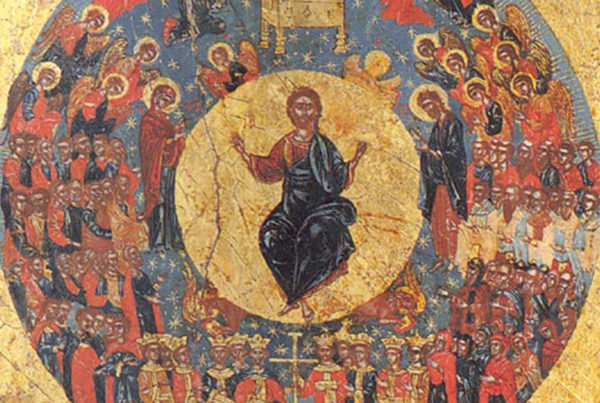One of the things I love most about Christian faith is the notion that God is both utterly transcendent and, precisely by that fact, utterly imminent. That is, he is both “beyond” us and so much “above the beyond” (as Gregory of Nyssa put it) that he is closer to us than our living breath. That is a constant source of comfort for me…
To that end, I ran into this poem by the great 17th/18th century English poet William Blake. It captures that dynamic beautifully. In it he reasons from human empathy and compassion to the infinite compassion of God, whose loving, lingering pity heals all our woe. His insight is grounded, of course, in the Incarnation. God is like THIS, Blake is saying – the God who wraps himself in human flesh to drain our cup of sorrow.
It encouraged me deeply, and I hope it does so for you, too:
ON ANOTHER’S SORROW
Can I see another’s woe,
And not be in sorrow too?
Can I see another’s grief,
And not seek for kind relief?
Can I see a falling tear,
And not feel my sorrow’s share?
Can a father see his child
Weep, nor be with sorrow fill’d?
Can a mother sit and hear
An infant groan, an infant fear?
No, no! never can it be!
Never, never can it be!
And can He who smiles on all
Hear the wren with sorrows small,
Hear the small bird’s grief and care,
Hear the woes that infants bear,
And not sit beside the nest,
Pouring pity in their breast;
And not sit the cradle near,
Weeping tear on infant’s tear;
And not sit both night and day,
Wiping all our tears away?
O, no! never can it be!
Never, never can it be!
He doth give His joy to all;
He becomes an infant small;
He becomes a man of woe;
He doth feel the sorrow too.
Think not thou canst sigh a sigh,
And thy Maker is not by;
Think not thou canst weep a tear,
And thy Maker is not near.
O! He gives to us His joy
That our grief He may destroy;
Till our grief is fled and gone
He doth sit by us and moan.



